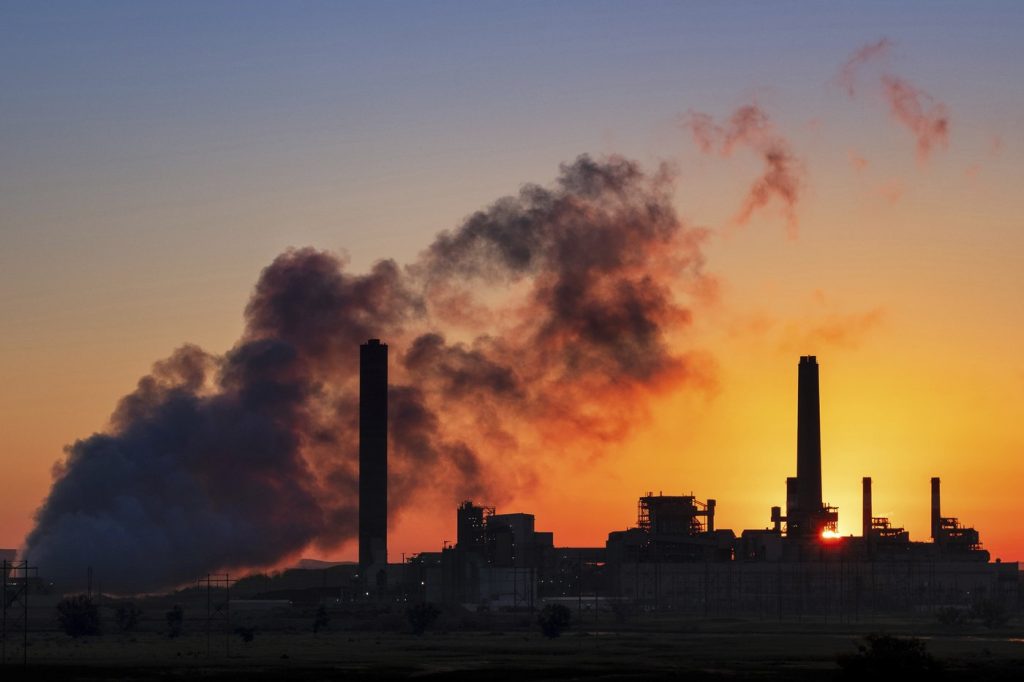On a recent Tuesday, President Donald Trump signed a new executive order aimed at energizing U.S. energy production, which could set the stage for legal battles between the federal government and states pursuing climate change laws. This order empowers the Department of Justice to potentially challenge state regulations designed to reduce greenhouse gas emissions from fossil fuels.
As demands for electricity surge due to advancements in artificial intelligence and cloud computing, along with heightened federal initiatives to expand high-tech manufacturing, Trump's order has emerged at a critical juncture. The order raises significant concerns, particularly as states introduce "climate superfund" legislation focused on holding fossil fuel industries accountable for their contribution to climate change.
In his declaration of a "national energy emergency," Trump specified that the Attorney General should take action against states that may exceed their constitutional authority in regulating energy development. His administration argues that state and local government's attempts to constrain energy production impede American energy dominance. Trump believes these state laws targeting climate change can be deemed as illegal overreach.
Michael Gerrard, the director of Columbia University’s Sabin Center for Climate Change Law, considers the federal government’s potential legal action against state climate laws as an “extraordinarily bold move.” He elucidated that one immediate strategy for the Department of Justice could involve intervening in ongoing lawsuits that assess whether states or cities are overstepping their bounds by demanding compensation from the fossil fuel sector for climate-related damages.
In defiance, Democratic governors pledged their commitment to combating climate change. California Governor Gavin Newsom criticized Trump's order for "turning back the clock" on climate action, asserting that California’s pollution reduction efforts would not be hindered by what he termed a "glorified press release." Alongside him, New York Governor Kathy Hochul and New Mexico Governor Michelle Lujan Grisham, co-chairs of the U.S. Climate Alliance—which encompasses 22 governors—expressed their intent to continue driving solutions to the climate crisis.
The push for climate superfund laws is gaining momentum, with states such as Vermont and New York currently engaged in federal court disputes over such legislation. Trump characterized these laws as extortive toward energy companies and a threat to national energy security. These state legislations mirror the long-standing federal superfund law, aiming to compel major fossil fuel firms to contribute to recovery funds based on their past greenhouse gas emissions.
In addition to Vermont and New York, other Democratic-controlled states—including New Jersey, Massachusetts, Oregon, and California—are contemplating similar measures. The American Petroleum Institute, representing oil and gas interests, praised Trump’s executive order, arguing that it would safeguard American energy from perceived "climate superfunds." They emphasized that directing the Department of Justice to confront such state overreach would help reestablish legal order and ensure the continuous supply of affordable and reliable energy to the nation.
Legal skirmishes are already unfolding in the courts. The American Petroleum Institute, in coordination with the U.S. Chamber of Commerce, has initiated a lawsuit against Vermont, while a separate suit challenging New York's measures has been brought forth by West Virginia, supported by a coalition of largely Republican states, including Texas, Ohio, and Georgia. The coalition "Make Polluters Pay," comprising consumer and environmental advocacy groups, expressed intentions to contest Trump's order, claiming it represents a capitulation of government to corporate interests and weaponizes the Justice Department against states that aim to impose responsibility on polluters.
The Department of Justice may also align itself with ongoing lawsuits favoring the fossil fuel industry, involving claims from cities and states, like Honolulu and numerous municipalities, seeking financial reparations for climate-related damages resulting from factors such as wildfires and rising sea levels. Recent months have seen the U.S. Supreme Court decline participation in climate-related lawsuits launched by oil and gas companies aimed at obstructing ongoing legal actions instigated by Democratic-led states.
As Trump’s order fosters discussions in state capitals nationwide, implications are visible even in Pennsylvania, where the governor is challenging a court case associated with regulations mandating power plant operators to account for greenhouse gas emissions—a first for major fossil fuel-producing states. John Quigley, a former Pennsylvania environmental protection secretary, raised concerns regarding the extensive reach of the Justice Department under this order, suggesting it could lead to challenges against various state pollution laws.











